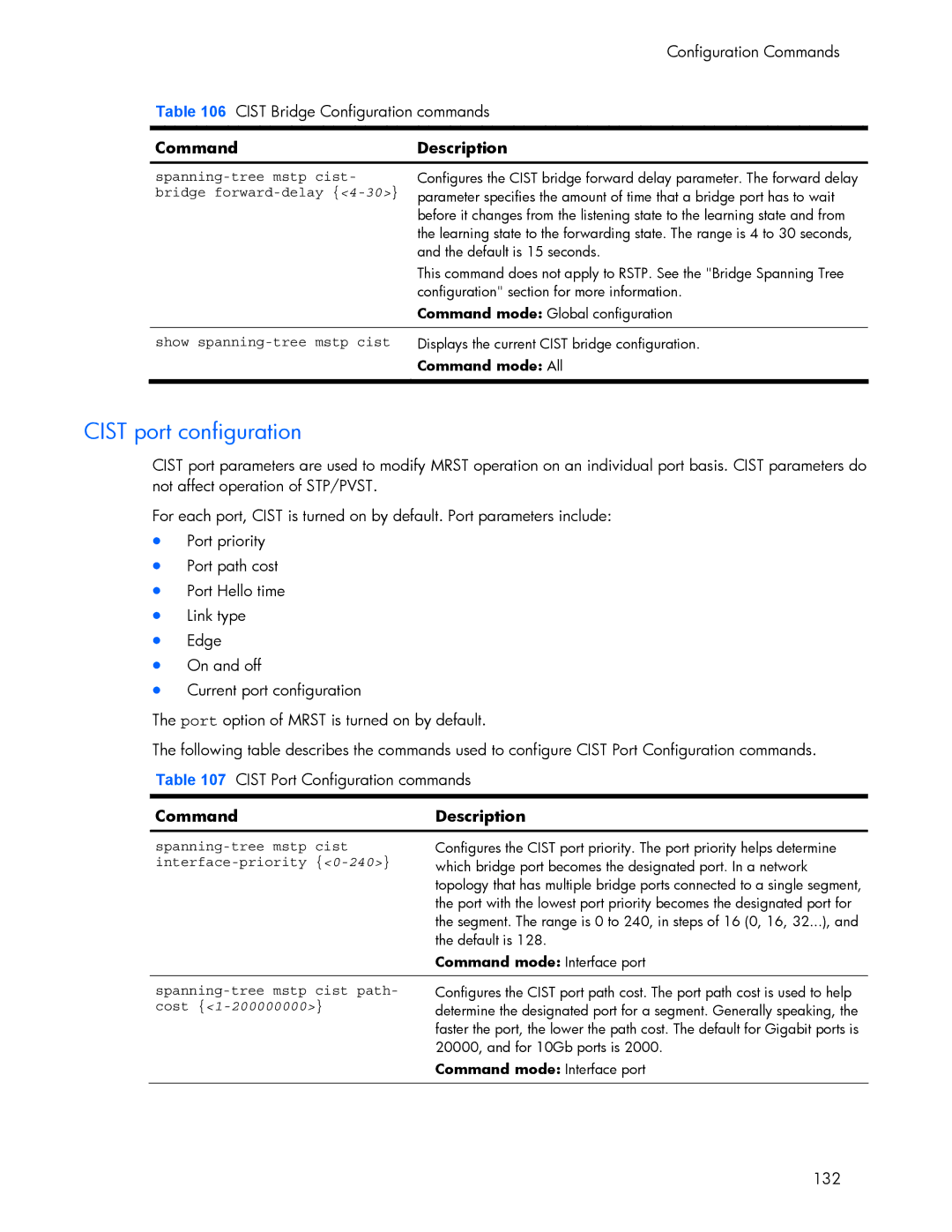| Configuration Commands |
Table 106 CIST Bridge Configuration commands | |
|
|
Command | Description |
|
|
| Configures the CIST bridge forward delay parameter. The forward delay |
bridge | parameter specifies the amount of time that a bridge port has to wait |
| before it changes from the listening state to the learning state and from |
| the learning state to the forwarding state. The range is 4 to 30 seconds, |
| and the default is 15 seconds. |
| This command does not apply to RSTP. See the "Bridge Spanning Tree |
| configuration" section for more information. |
| Command mode: Global configuration |
|
|
show | Displays the current CIST bridge configuration. |
| Command mode: All |
|
|
CIST port configuration
CIST port parameters are used to modify MRST operation on an individual port basis. CIST parameters do not affect operation of STP/PVST.
For each port, CIST is turned on by default. Port parameters include:
•Port priority
•Port path cost
•Port Hello time
•Link type
•Edge
•On and off
•Current port configuration
The port option of MRST is turned on by default.
The following table describes the commands used to configure CIST Port Configuration commands. Table 107 CIST Port Configuration commands
Command | Description |
|
|
| Configures the CIST port priority. The port priority helps determine |
| which bridge port becomes the designated port. In a network |
| topology that has multiple bridge ports connected to a single segment, |
| the port with the lowest port priority becomes the designated port for |
| the segment. The range is 0 to 240, in steps of 16 (0, 16, 32...), and |
| the default is 128. |
| Command mode: Interface port |
|
|
| Configures the CIST port path cost. The port path cost is used to help |
cost | determine the designated port for a segment. Generally speaking, the |
| faster the port, the lower the path cost. The default for Gigabit ports is |
| 20000, and for 10Gb ports is 2000. |
| Command mode: Interface port |
|
|
132
